6 Ways to Prevent Hairballs in Cats
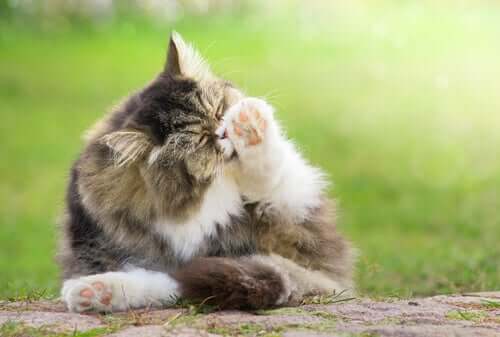
Cats spend several hours licking themselves every day. This habit has its pros and cons. Although it does help them keep clean, they can also ingest large amounts of hair in the process. So, in this article, we want to tell you how to prevent hairballs in cats.
Hairballs in cats: a real health risk
If you have a cat, you’ll probably have noticed it constantly licking its paws, chest, and pretty much every other part of its body. Not long after, you’ll hear it cough a few times until it spits up a hairball. Needless to say, this is pretty unpleasant – for you and your cat – but it can be avoided.
More than simply being unpleasant, however, it’s important to remember that a build-up of hair in the stomach can cause a number of health issues, such as constipation, apathy, swollen abdomen, weakness, or loss of appetite.
Hairballs are more common in long-haired breeds such as the Angora, Persian, Maine Coon, or the Birman. As they wash themselves, their rough tongues pull out hairs, which they then swallow. This can cause vomiting, and even choking.
What’s more, the likelihood of your cat developing a hairball increases during the shedding season in spring or fall. Giving your cat a helping hand is essential for preventing hairballs.
How to prevent hairballs in cats
When we see our cat struggling with a hairball stuck in its throat, we want to be able to help them. The problem is that we often don’t know how to. The best way is to take steps to prevent the hairballs in the first place, but there are also ways to help your cat get rid of them more easily. Take a look at the following advice:
1. How to prevent hairballs- daily brushing
If you have a long-haired breed such as a Norwegian forest cat or a Himalayan, we would recommend brushing them every day. Pet stores sell a huge variety of great brushes, in all kinds of different designs. If your cat won’t let you groom it, try to remove as much excess hair as you can when you’re stroking and petting them.
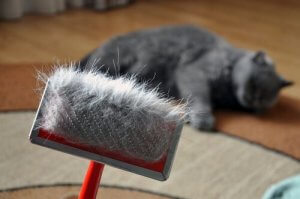
2. Give them fibrous foods
Ask your vet which pet foods contain the highest amount of fiber. This will help your cat’s intestines get rid of the build-up of hairs more easily. One of the most-fiber rich foods you can feed you cat is malt. You can mix it with their usual food, or simply dab some on their paws- they’ll then have to eat it to get themselves clean!
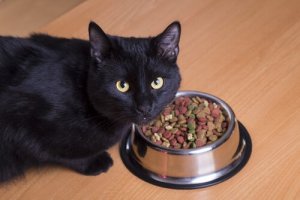
You can buy specially formulated food for long-haired cats in most pet stores, as well as laxative supplements to help them during shedding season.
3. How to prevent hairballs – use a natural lubricant
Natural oils such as olive oil are great for cats with hairballs, as they act as a lubricant when they go to the toilet. If your cat eats dry food, pour a little over the top. Alternatively, you can put some on its paws so it will have to eat it when it licks itself clean.
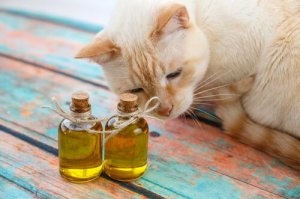
4. Don’t forget water
Fresh water can also act as a lubricant, so it’s very important to keep your cat hydrated. What’s more, by drinking water they will push the hairball from the throat to the stomach, and there is less chance of them spitting it back up.
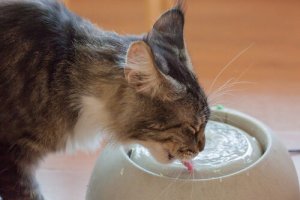
5. How to prevent hairballs – buy some barley plants
Ask your vet if this option would be suitable for your cat. Some plants, like barley, valerian or catnip can help cats to get rid of hairballs. Be careful though: many of the plants we have in our homes are actually toxic for our pets. Be sure to buy the right one.
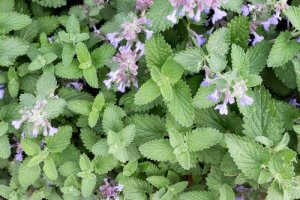
6. Play more
Some cats spend all day licking themselves simply because they are bored. Others do it because they are obsessed with hygiene. To avoid both these things, we would recommend playing with your cat more. Not only will this distract them and improve their mood, but it can also aid with digestion.
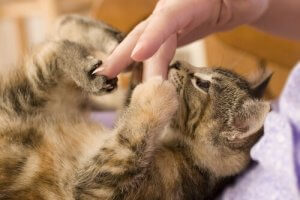
If none of these tips helps to reduce the number of hairballs in your cat, we would recommend consulting with a vet. They will be able to help identify the cause of the problem and come up with a solution.
All cited sources were thoroughly reviewed by our team to ensure their quality, reliability, currency, and validity. The bibliography of this article was considered reliable and of academic or scientific accuracy.
- Hernández, C. A. (2014). Emergencias gastrointestinales en perros y gatos. Revista CES Medicina Veterinaria y Zootecnia. https://doi.org/10.21615/1030